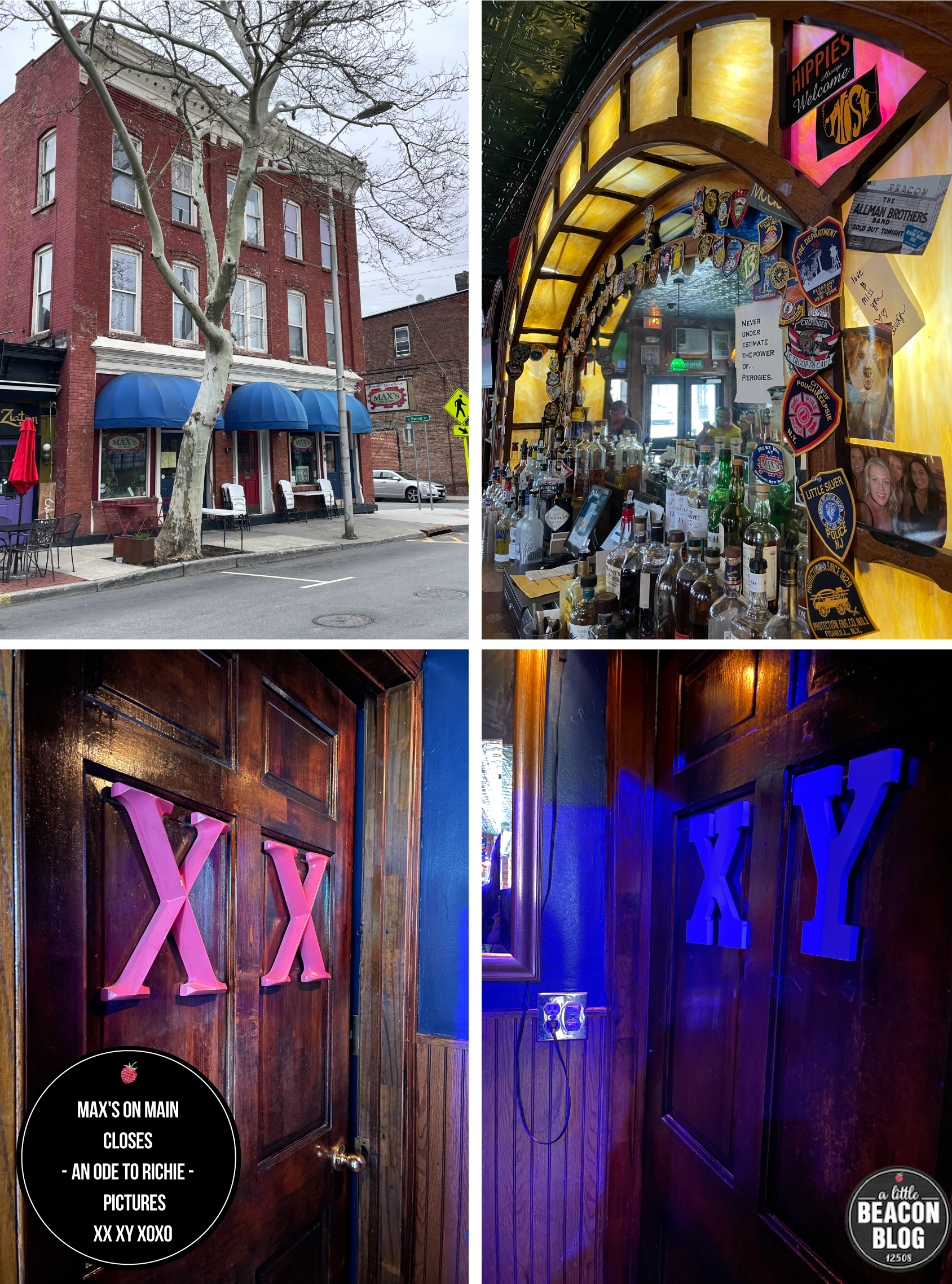How Sales Tax In Beacon Is Collected - By Dutchess County - And Redistributed
/As business in Beacon began to increase years ago, with commercial rents and home prices inching up, A Little Beacon Blog grew curious about the sales tax, and if Beacon was benefiting from any increased sales tax. Furthermore, we wondered, how Beacon was benefiting tax-wise from the growing short term rental market from website platforms like Airbnb.
Nick Page, a local resident and Dutchess County Legislator, as well as managerial worker for his family’s commercial and residential property development company, Hudson Todd, LLC, in Beacon, was wondering the same thing. He embarked on a search, and A Little Beacon Blog brought on research assistant Yvonne DeMoss to pursue finding the total sales tax generated for Beacon. Despite following up with numerous offices, we were unable to find the sales tax number. Instead, we are publishing what we have found so far that helps clarify how Beacon earns back the sales tax generated here.
“Surrendering Of Rights Of Preemption With Respect To Sales And Use Tax As A Source Of Revenue”
Decades ago, Beacon, Poughkeepsie, and some other surrounding municipalities, agreed to surrender all sales tax generated in their communities to Dutchess County to manage. Dutchess County is then contracted to pay out a fixed sum from that collection of money, negotiated over the years through different contracts and mayors, back to the municipalities. You can see the contract originally signed between Dutchess County and Beacon (as well as other municipalities) here that started as far back as 1989 and was renewed in 2013 to go through 2022.
How Much Sales Tax Is Generated In Beacon?
When A Little Beacon Blog started this research project last year, we were looking for the total number of sales tax dollars generated in Beacon, so that we could see if the number was going up or down. Instead, we learned that Dutchess County pays Beacon a fixed sum over a scheduled period of time. Once we learned of the flat rate Beacon was paid by Dutchess County, we wanted to see if Beacon was getting a good deal or not, since the flat rate is one that is negotiated. In June 2019, we reached out to Beacon’s City Administrator, Anthony Ruggiero, to see if he knew Beacon’s sales tax total generated in Beacon, as compared with the flat rate Beacon receives, but he did not: “I am sorry, I would not have that information. We believe it is a pretty good deal.”
When A Little Beacon Blog inquired with then Mayor Randy Casale about it also in June 2019, he stated: “I’ve been looking for the number for 4 years!” Randy did indicate that by having a flat rate that does not change, it could put Beacon in a good position of guaranteed income, should it face a slump or dark period as is has before. This makes the annual budget more predictable. New York State Comptroller Thomas P. DiNapoli said after issuing a sales tax performance report in 2018: “As history has proven, sales tax can be an unpredictable revenue source for our local governments.”
We have confirmed that the Department of Taxation collects the amount of sales tax generated in Beacon, but will not release it, stating that tallying a total dollar figure would be difficult, as online sales gets tricky when items are purchased from a store and shipped out of state.
Jeff McLauchlin, Senior Administrative Analyst for the New York Department of Taxation, explained it this way: “Sales tax vendors collect the tax and remit it to the State Department of Taxation and Finance and the department distributes the revenue. Sales tax in New York is a destination based. One quick example: A business in Beacon sells to a customer online who lives in Saratoga. The sales tax rate is that for Saratoga and the return filed by the business should reflect the breakdown of sales to different jurisdictions properly. Purchasers who aren’t charged the correct rate or no tax at all are still responsible for paying the sales tax.” Saratoga County also collects sales tax for municipalities, but Saratoga City, a tourist destination, collects its own separately. A finance transparency tool can be found here.
Dutchess County Legislature Nick Page submitted a FOIL to the Department of Taxation and Finance in July 2019 in order to get clear numbers, and was told that the answer would take time to process, might be completed in August 2019, would have a fee for printing pages, and was not guaranteed to be approved.
The New York State Comptrollers office also states that they are not apprised of what the incoming dollar figure is, but does track the total amount for payments paid out (aka “distributions) by Dutchess County to each participating municipality. The State Comptroller’s response in May 2019 by way of Katelyn Israelski, with the Office of State Comptroller Thomas P. DiNapoli, was: “Our Local Government and School Accountability division has informed me that OSC doesn't typically monitor monthly or quarterly sales tax distributions by counties, but that data is reported annually by both the county and those local governments receiving funds.”
Katelyn then attached the historical data that they have available for Beacon for Sales Tax Revenue Distributions from Dutchess County. “Unfortunately,” she continued, “we do not have data on the sales tax generated, for which NYS Dept. of Tax and Finance is the primary source.”
The fixed dollar amount that Beacon receives from Dutchess County is as follows, as per the most recent contract through 2022:
The County shall distribute to the Cities of Poughkeepsie and Beacon, collectively, a fixed amount of money from the $25 million dollars referred to in Paragraph 2 above pursuant to Section 1262(c) of the Tax Law. The City of Poughkeepsie shall receive $9,566,212 and the City of Beacon shall receive $4,158,686 subject to the provisions of paragraph 6 below.
Beginning in 2014 and continuing through 2022 the County shall make 21 equal payments of $198,032.66 to Beacon and $455,533,90 to Poughkeepsie with such payments to be made between February 1st and December 31st of each year. Such payments by the County shall be made directly to the Cities on the next business day after receipt of the County's share of the sales tax proceeds from the State Commissioner, by wire to a designated account or by check of the County Commissioner of Finance, at the option of each City.
Beacon will not exercise its right of preemption to impose a local Sales and Use Tax pursuant to Article 29 of the Tax Law of the State of New York to be effective for each year of the term of this agreement as long as the County's Sales and Use Tax remains at no less than 3.75%.
What About Airbnb Tax Revenue?
In terms of taxes collected from Airbnb renters, of which there is a healthy market in Beacon, which was just legalized in June of 2020, Dutchess County again receives the revenue from that tax, known as the Hotel Tax, or in some cases, Bed Tax or Occupancy Tax. Says County Legislature Nick Page: “Airbnb began collecting 4% Bed Tax from Hosts using the Airbnb platform on March 1, 2017. Airbnb remits one payment to the County by the 20th of each month for the preceding month’s activity. The County received $221,918 from Airbnb in 2017. The payments are not broken down by municipality and the County does not have access to the addresses from Airbnb.”
It is unclear at this time if Dutchess County sends a payment to Beacon for a portion of the bookings made in Beacon. According to James Gazzale of the New York State Department of Taxation and Finance, the collection and tracking of the Hotel Tax resides with the county: “This is strictly a local county issue. It’s separate from our regular sales tax. The state authorizes this hotel tax, but the county imposes, administers and collects it. Your best bet is to reach out to the local county Commissioner of Finance.”
Onward! Consider this story ongoing as we learn more about taxes and where they go.


































